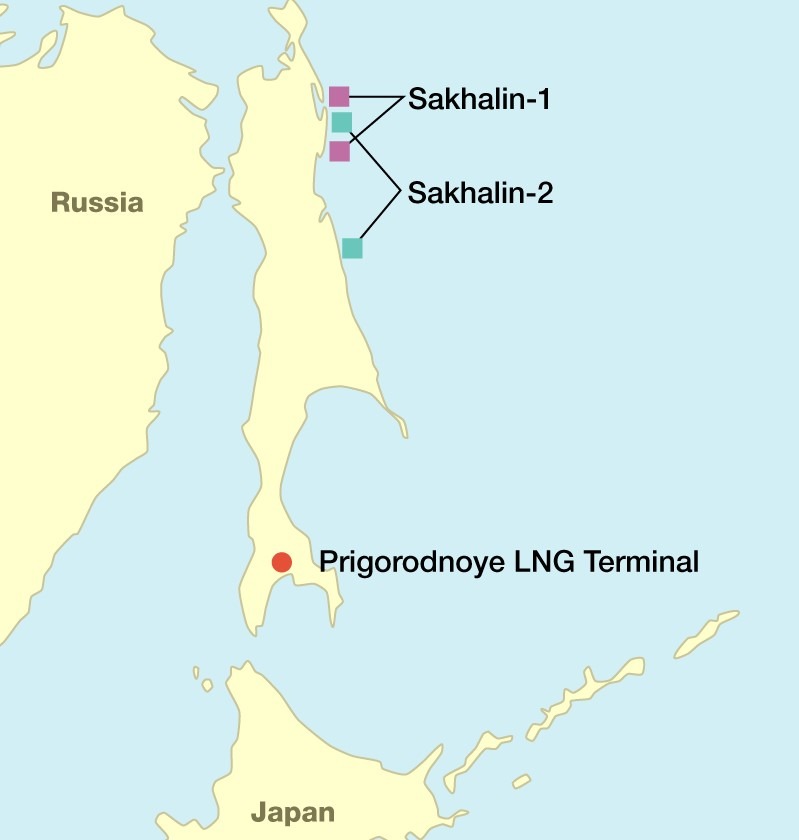Perizat RISBEK KIZI
Despite the withdrawal of a number of EU and US energy companies from the Russian market, Japanese corporations continue to be shareholders of oil and gas projects. Moreover, convenient logistics, good profits and reliable supplies force the Tokyo administration not to join the ban on importing Russian gas and oil.
The role of Russia in providing energy to Japan
Japan is resource-poor and relies on imports for most of its energy, with almost 90% of its oil and about 20% of its gas coming from the Middle East, so crude oil and liquefied natural gas (LNG) imports from Russia were considered important in terms of energy security. Thus, according to trade statistics for 2021, Japan imports 3.6% of crude oil and 8.7% of LNG from Russia, about half of the oil is produced in the Sakhalin-1 and Sakhalin-2 projects, and almost all of the gas from the Sakhalin-2 project. Since the distance is short, it only takes about 3 days to transport, which is advantageous in terms of transportation costs.
The Sakhalin-2 project is being implemented on a production-sharing basis. Sakhalin Energy is the main operator. The controlling stake (50% plus one share) belongs to Gazprom. However, Japanese energy firms Mitsui and Mitsubishi collectively own more than 20% of the shares – they account for 12.5% and 10% of the securities, respectively. Sakhalin-2 produces 10 million tons of LNG per year, with approximately 60% of the fuel going to Japan.
Profitability and reliability of Sakhalin-2
According to many experts, Tokyo is not ready to withdraw from Sakhalin-2 even against the backdrop of anti-Russian rhetoric and the sanctions boycott that the US and EU countries have announced to Moscow. Thus, on September 3, Mitsui OSK Lines president and chief executive Takeshi Hashimoto said the country lacked viable alternatives to Russian LNG, which it buys relatively cheaply under long-term deals, to secure its baseload power.
“We cannot use many nuclear power stations therefore the supply and demand balance of the power industry is quite tight,” he told the Financial Times. “Nowadays, the spot market of both LNG and coal is quite expensive. That is one of the reasons why Japan is so reluctant to stop the LNG imports from Russia.”
On the other hand, if the EU and the US put pressure on the Asian government, Tokyo will have to buy LNG in the spot market, which is currently experiencing record high prices. The total losses in the event of a unilateral withdrawal of Japanese companies from the Russian project could be up to $15 billion, writes the Japanese newspaper Nikkei.
Possible risks that China will buy Japan’s share
Not only transport and economic benefits are the reason for Japan to remain in the Russian market, but also the concern that another country may take its place. This was announced by the Minister of Economy, Trade and Industry Koichi Hagiuda at a cabinet meeting. The Minister drew attention to the fact that Shell had already begun negotiations on the sale of its stake in Sakhalin-2 to a Chinese oil company.
“Withdrawal (from the project) will not be an effective sanction if a third country acquires a share,” the minister said, noting that the refusal to invest in Sakhalin-2 would lead to an increase in resource prices and thus only benefit Russia.
The media notes that Japan annually receives approximately 60% of all energy produced on Sakhalin, and the appearance of China in the usual economic chain may deprive Japan of important supplies.
As a result, Japan is trying to put pressure on Moscow (Japan has joined with the U.S. and European countries in placing sanctions on Russia, including freezing the assets of Russian oligarchs and supporting an EU initiative to exclude Russian banks from the SWIFT payment system) while continuing to import natural gas and oil from Russia amid a global supply crisis. In other words, Tokyo is trying to ensure the necessary energy supplies “in every possible way”, but on the other hand, seeks to gradually reduce its dependence on Russia.

